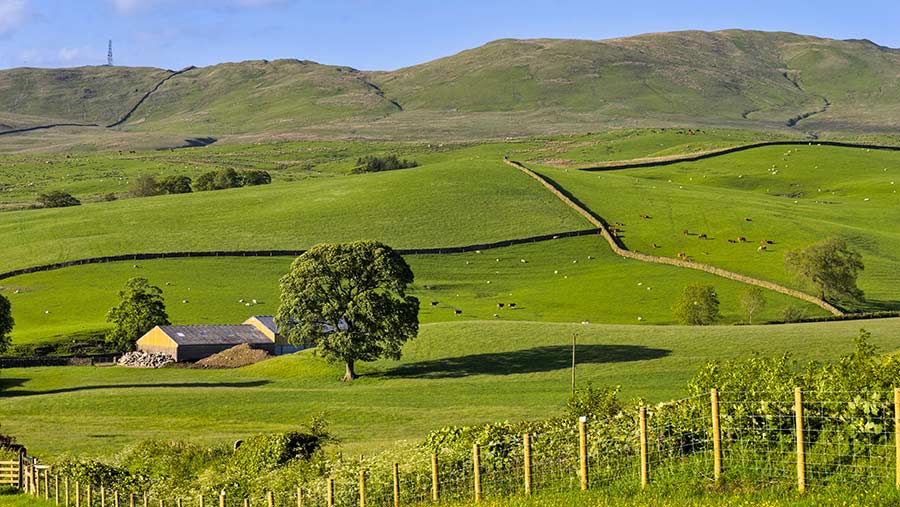Opinion: Reviewing farm policy plans is an act of prudence
 © Kevin Eaves/Adobe Stock
© Kevin Eaves/Adobe Stock Before I start, I need to warn you the following article may contain gratuitous name-dropping that some readers may find upsetting.
Furthermore, it should be noted the people mentioned are not glamorous celebs like Joey Essex, but rather they are politicians.
The first name to drop is George Eustice. I recollect a meeting with him a few years ago where, in a gesture of polite bonhomie, I wished him luck in the forthcoming cabinet reshuffle.
He gave me a wry smile and said, “What you need to remember is, cabinet reshuffles are more like drive-by shootings than first-team selections”.
See also: Defra rejects claims its ELM scheme could be axed
I was sorry to hear that George had fallen victim to the first drive-by shootings actioned by his old Defra boss Liz Truss.
Despite his latest termination, the stats show that George is a political survivor, having held ministerial positions at Defra for nine consecutive years.
It’s not exactly the ministerial longevity achieved by Pitt the Younger, but it’s certainly a record by a country mile for those serving in Defra.
George is a rare breed in that he comes from and has worked on a family farm. Defra will miss the genuine farm-mud he left on its carpets.
But the good news is the reshuffle also saw the introduction of Mark Spencer as farming minister, another man with strong on-farm roots.
Whether farmers make good politicians is a debate that could go on without any great conclusion. It would probably be easier to decide if politicians make good farmers.
However, his first-hand knowledge of the everyday challenges of running a farm will do Mark no harm as he finds his feet under his new Defra desk.
The bedding-in of the radical post-CAP policies of the post-Brexit world will need input from practitioners, not just desk-drivers and armchair critics.
The fact that the new ministerial team is minded to at least review Environmental Land Management (ELM) has sparked a furious response from environmental lobby groups.
But those of us who will actually have to implement these policies on the ground have significant reservations that things are being rushed through and not properly thought out.
To my mind, pressing the pause button would be an act of prudence rather than some sort of unacceptable U-turn.
The world is a very different place to what it was three years ago, when the current policies were being fleshed out.
What is clear to my mind is that most of the ELM options involve some decrease in production.
Like most farmers who have, over the past 30 years, signed up for various stewardship schemes that have taken some land out of production, I am not setting my face against this continuing in the future.
However, in a world where food production is being weaponised by men like Vladimir Putin, it must be common sense to question how far we should go in deliberately reducing UK farm production through policy change.
Furthermore, I’m not sure that those who run nature reserves rather than productive farms should dominate the policy design process.
We need to remember here the words of Harold Macmillan who, when asked what was the biggest challenge of being a prime minister, replied, “Events, dear boy, events”.
There’s no shortage of events in the world at the moment. It will need a flexible approach.

